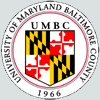| |||||||||||||||||||||
Tips:  Range on the Protein: Protein ID Protein Position Domain Position: 
|
|---|
Weblogos are Copyright (c) 2002 Regents of the University of California
| DMDM_info@umbc.edu | 1000 Hilltop Circle, Baltimore, MD 21250 | Department of Biological Sciences | Phone: 410-455-2258 |




 Release Factor 3 (RF3) protein involved in the terminal step of translocation in bacteria. Peptide chain release factor 3 (RF3) is a protein involved in the termination step of translation in bacteria. Termination occurs when class I release factors (RF1 or RF2) recognize the stop codon at the A-site of the ribosome and activate the release of the nascent polypeptide. The class II release factor RF3 then initiates the release of the class I RF from the ribosome. RF3 binds to the RF/ribosome complex in the inactive (GDP-bound) state. GDP/GTP exchange occurs, followed by the release of the class I RF. Subsequent hydrolysis of GTP to GDP triggers the release of RF3 from the ribosome. RF3 also enhances the efficiency of class I RFs at less preferred stop codons and at stop codons in weak contexts.
Release Factor 3 (RF3) protein involved in the terminal step of translocation in bacteria. Peptide chain release factor 3 (RF3) is a protein involved in the termination step of translation in bacteria. Termination occurs when class I release factors (RF1 or RF2) recognize the stop codon at the A-site of the ribosome and activate the release of the nascent polypeptide. The class II release factor RF3 then initiates the release of the class I RF from the ribosome. RF3 binds to the RF/ribosome complex in the inactive (GDP-bound) state. GDP/GTP exchange occurs, followed by the release of the class I RF. Subsequent hydrolysis of GTP to GDP triggers the release of RF3 from the ribosome. RF3 also enhances the efficiency of class I RFs at less preferred stop codons and at stop codons in weak contexts. No pairwise interactions are available for this conserved domain.
No pairwise interactions are available for this conserved domain.













